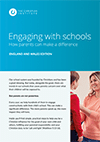The Government has announced a range of tough new measures to ensure that free speech is not restricted at universities.
After an increasing number of students, staff and academics have been silenced or no-platformed, Education Secretary Gavin Williamson warned of a “chilling effect”, leaving people feeling they cannot freely express themselves.
Places of higher education will now be subject to a new free speech condition in order to be registered in England and access public funding. If universities and colleges break this condition, the Office for Students (OfS) will have the power to impose sanctions upon them, including financial penalties.
Legal redress
The new rules will also apply to Students’ Unions.
The Department for Education says this will be the first time such groups “would have to take steps to ensure that lawful free speech is secured for their members and others, including visiting speakers”.
Individuals who are expelled, dismissed or demoted as a result of free speech duties being breached will also now be able to seek compensation for losses through the courts.
Free Speech Champion
The Education Secretary is also set to appoint a new Free Speech and Academic Freedom Champion, who will be appointed to the board of the OfS.
The role will be tasked with investigating potential infringements, including cases of no-platforming speakers or the dismissal of academics who speak out.
Higher education providers would be legally required to actively promote free speech, although the Government stated that it expects institutions to go “beyond the minimum legal duties”.
Violence
Writing in The Daily Telegraph, Gavin Williamson said that “despite our repeated warnings and good practice from some institutions, I have been greatly concerned to hear a growing number of reports of a silencing of voices and a chilling effect of censorship on campus.
“Under this rising intolerance, students have found themselves wrongfully expelled from their courses, academics fired and others forced to live under a threat of violence. And I was shocked by the findings of a recent study by King’s College London, that found a quarter of students believed violence was an acceptable response to some forms of speech.
“When you add this worrying finding to the high profile cases of guest speakers being no-platformed, it becomes very apparent that further action must be taken.”
Tide turning
He continued: “Though the problems we face are undoubtedly serious, now there is real cause for optimism.
“We have witnessed the bravery of students, academics and leaders alike, who have stood up courageously for free speech and academic freedom in the face of vocal opposition.
“This fills me with hope that the tide is turning, and that together the Government and our higher education community can continue our longstanding tradition of respecting and protecting the right of speech and ensure our universities remain the bastions of free thought and intellectual debate, for which they have long been celebrated.”
‘Welcome boost’
The Christian Institute welcomed the plans, pointing out that it will benefit Christian student groups and church student workers, as well as pro-life groups.
Simon Calvert said: “We all know cases of Christian Unions being disaffiliated from the Student Union – usually for holding orthodox beliefs about sexual ethics. We’ve all heard stories of Christian groups having their event bookings cancelled, or pro-life groups being effectively voted off campus.
“And many Christian students and academic staff can testify to the difficulty they face trying to advance any ideas that don’t fit with the narrow, secularist, socially liberal ideology that dominates university campuses.
“Giving people the ability to enforce their free speech rights against universities and student unions will give a welcome boost to CUs and pro-life groups, as well as to individual students and staff.
Felix Ngole
In 2016, Felix Ngole, a social work student was expelled by the University of Sheffield, after he commented on Facebook that the Bible says homosexuality is a sin.
The university claimed that any expression of disapproval of same-sex relationships would breach the professional guidelines for social workers.
Ngole won his case at the Court of Appeal. Overturning a previous High Court decision, it criticised the university for attempting to introduce a blanket ban on freedom of speech.
In its decision it ruled: “The mere expression of views on theological grounds (e.g. that ‘homosexuality is a sin’) does not necessarily connote that the person expressing such views will discriminate on such grounds.”
Influential think tank urges Govt to protect free speech in universities
Office for Students defends free speech in no-platforming row
Security guards for Oxford prof after trans activists’ threats



